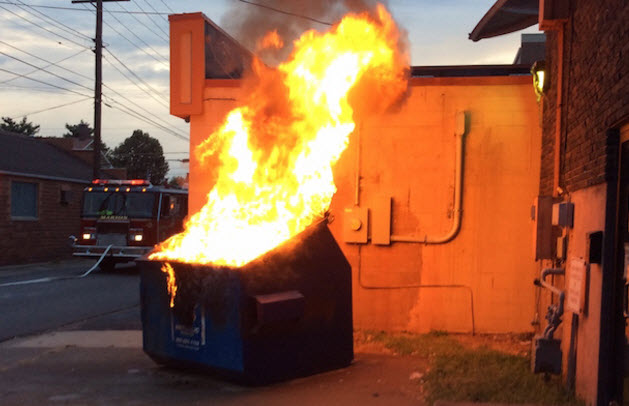JC Bowman, executive director of Professional Educators of Tennessee, offered these comments in response to Governor Bill Lee’s State of the State:
Governor Bill Lee gave his first state of the state speech on Monday, March 4, 2019, from our state Capitol in Nashville, Tennessee. A highly anticipated address, it focused heavily on education issues including career and technical education initiatives, increased funding for school safety programs, and expansion of various school choice initiatives.
Since the beginning of his campaign, one of Governor Lee’s biggest priorities has been workforce development through expanding and strengthening career and technical education programs. As expected, he spoke more in-depth about his proposed Governor’s Investment in Vocational Education Initiative (GIVE) and how it fits into his administration’s proposed budget. Governor Lee sees this as an opportunity to help students develop the practical skills that help them perform in project-based environments, learn to work with others, and grow the discipline needed for success in a competitive workplace. It facilitates new partnerships between industry and our schools, and a more concrete connection between labor and education, which is a direction that the federal government has taken the past few years. The state will also expand and improve offerings in STEM, and CTE is a major priority. We applaud those investments in education.
TEACHER COMPENSATION
We are pleased that Governor Lee is fully funding the Basic Education Program and recommending $71 million for a well-deserved 2.5% pay raise for teachers. Compensation is the key to recruitment and retention of our educators. Our teacher compensation model needs to be competitive nationally. There is currently pending legislation from the administration that would require school districts to report to the department of education and the BEP review committee how they have implemented increased funding from the state for instructional wages and salaries, intended by legislators for teacher raises. This is a positive development. Governor Lee is sending a message to educators that he recognizes and appreciates their efforts and will work to see they are fairly compensated for their efforts.
TESTING
Policymakers and stakeholders have been waiting on a message from the governor about how he plans to improve our assessment system, to ensure that our metrics are empowering and informing, not inhibiting quality instruction, while providing accurate feedback for educators, parents, and students. The Governor talked about the frustration around the administration of the state test, and he has charged the Commissioner with the procurement process. Going forward, he stated that his focus will be on executing a testing regimen that is trustworthy, helpful, and on time. However, he did not address other adjustments to testing, like a pilot project that allowed some districts to use the ACT, ACT Aspire, or SAT Suites as a means of assessment or flexibility in high performing districts to use alternative evaluations.
SCHOOL SAFETY
School safety is also a high priority for the Governor. The proposed School Safety Grant program includes $40 million aimed at addressing the need for an SRO in every school. This includes an increase in current recurring expenditures and a one-time infusion of an additional $20 million. The program will prioritize the approximately 500 schools that do not currently have an SRO. While there is a local match requirement, schools may include the costs of current safety measures in that calculation. For schools who already have SROs, there will be an application process for them to request grant funds for other safety-related initiatives as outlined in the proposed legislation.
“School safety has been a high priority for Professional Educators of Tennessee,” according to the executive director of the organization JC Bowman. The organization conducted a statewide assessment on safety in 2018. Hamilton County Sheriff Jim Hammond and Bowman also conducted a well-publicized School Safety Town Hall in Hamilton County in 2018.
“One of the highest priorities we can have in American society is the safety and protection of children – and the men and women who teach them,” according to Bowman. He added, “we think this is a very positive step in keeping our schools safe and reducing school violence.”
Helping students with mental health issues is another important component of school safety – especially children who have experienced physical abuse, verbal abuse, sexual abuse, physical neglect, and emotional neglect. Professional Educators of Tennessee has advocated for an increase in school counselors, whose work with students in this area of concern is of equal concern as their work helping student prepare to be college and career ready. The TN Department of Education launched a Trauma-Informed Schools initiative last fall to designate schools that have undergone training on how to create a school environment that both helps students and empowers teachers in their daily interactions with students. The program trains adults in the school to recognize and respond to those who have been affected by traumatic stress and includes training on adverse childhood experiences (ACEs). We must make every school a safer place for all of our children.
CHARTER SCHOOLS
If a charter school is effective, then facility dollars may be a good investment. However, if a charter school fails to deliver on its promise of a quality education then the investment is a waste. Public schools are likely to also want to secure facility funding. We look forward to this debate and likely discussion. The state will eventually need to address facility growth in rapidly growing communities.
ED SAVINGS ACCOUNTS
For the most part, school choice is already available to upper-class families through residential mobility. However, low-income and middle-income parents/guardians have been subjected to limited choices for their children. This proposal by the Governor on Education Savings Accounts (ESAs) will allow parents in the most under-performing school districts to use a portion of state education money in a way that fits with what they believe that their children need. ESAs will most certainly be the most problematic piece for the Governor to pass and enact. The Tennessee Education Savings Account will provide approximately $7,300 to eligible, participating students. Eligibility is limited to low-income students in districts with three or more schools ranked in the bottom 10% of schools. This currently includes Metro-Nashville Public Schools, Hamilton County, Knox County, Jackson-Madison County, Shelby County, and the Achievement School District.
“They will likely pose capacity limitations for low socio-economic parents,” noted Executive Director JC Bowman. “By targeting districts that are lower performing, Governor Lee may be able to pass it through the Tennessee General Assembly. Nevertheless, ESAs do not guarantee improved school effectiveness or outcomes, better parental involvement, and certainly no increased systemic investments in public education. A positive to Lee’s ESA plan is that it will invest at least $25 million new dollars in public schools in the first year to fill the gap when a student transfers to another school. However, we have concerns regarding the implementation of the plan as presented, as well as future expansion.”
CONCLUSION
There was much to like in Governor Lee’s State of the State. The debate over ESAs will likely be the most contentious and draw the most debate. A fully funded Basic Education Program (BEP), recommending $71 million and a 2.5% pay raise for teachers is much needed. We had hoped he would address other issues like school finance and discuss the possibilities of a school funding formula to reflect changing 21st century needs. However, in general, we think most Tennesseans will react positively to the speech by Governor Lee. Those on the right will certainly love the attention to civics and character formation, as well as on curriculum in which he pledged to “root out” the influence of Common Core in our state. Those on the left will like increased funding for school safety programs going to SROs. He laid out a fairly ambitious agenda; it is now the Tennessee General Assembly’s turn to vote their opinion.
For more on education politics and policy in Tennessee, follow @TNEdReport




